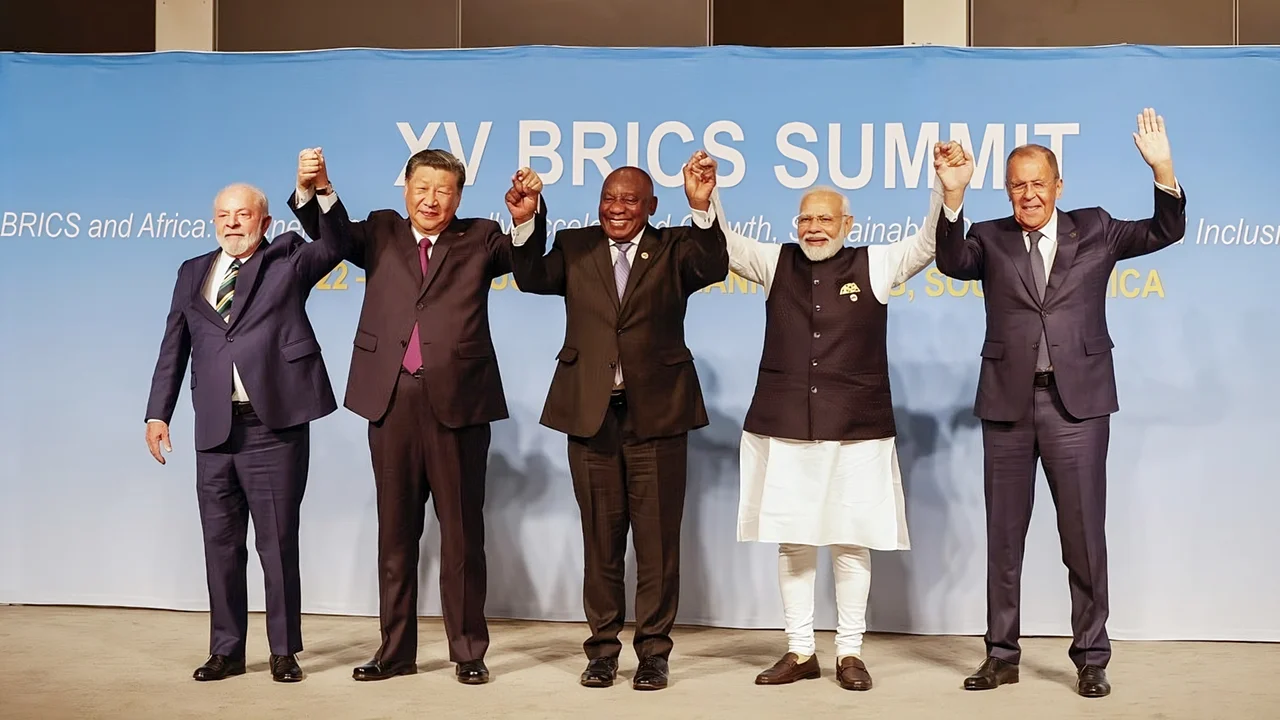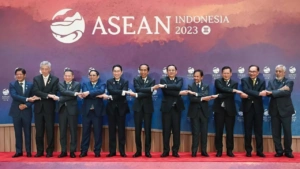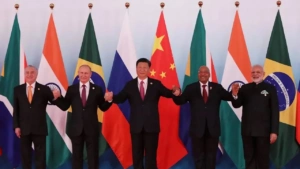
In a notable declaration, Russian President Vladimir Putin announced that the upcoming 2024 BRICS summit will find its venue in the vibrant and historic Russian city of Kazan. This announcement comes on the heels of China’s President Xi Jinping’s call to expedite the pace of expansion within the emerging markets bloc during this year’s gathering in Johannesburg. Putin’s announcement, made through a video link from the Kremlin, underscored his commitment to fortify the bloc’s role and authority during his tenure as the chairperson.
Bolstering International Standing
Russia’s decision to host the 2024 BRICS summit in Kazan holds broader implications beyond the event itself. This move serves as a strategic boost to Russia’s endeavors to demonstrate that it remains engaged and connected on the global stage, despite the controversies surrounding Putin’s involvement in the Ukraine conflict the previous year. The choice of Kazan for the summit is expected to reinforce Moscow’s position as a vital player in the international arena, especially among countries of the Global South.
China’s Call for Accelerated Expansion
President Xi Jinping’s compelling call for the acceleration of the BRICS group’s expansion during the Johannesburg summit echoes China’s vision for the bloc. As the world’s second-largest economy, China aims to position the BRICS alliance as a substantial rival to the traditional economic powers such as the G7. Xi emphasized the imperative of welcoming more countries into the BRICS family, fostering collaborative wisdom to create a more equitable and rational global governance structure. This aligns with the broader narrative of reshaping the global economic landscape, with emerging markets taking center stage.
The Nuances of Membership Expansion
However, amidst the enthusiasm for rapid expansion, Indian Prime Minister Narendra Modi put forward a prudent reminder of the importance of consensus among the existing members. While expressing India’s full support for an expanded BRICS membership, Modi underscored the significance of progressing based on consensus. This stance resonates with New Delhi’s approach of advocating for a gradual and phased inclusion of new members, ensuring a cohesive and effective bloc that reflects the diverse interests of its constituents.
Criteria for New Members
As the BRICS group encounters expressions of interest from numerous countries, including Argentina, Saudi Arabia, and Indonesia, the summit’s central focus revolves around establishing well-defined criteria for admitting new members. The goal is to establish a transparent framework that guides the selection of new entrants, ensuring that the expansion enriches the bloc’s collective capabilities. While formal expressions of interest are noteworthy, the path to membership requires a thorough evaluation and alignment with the BRICS’ overarching goals and values.
Strengthening Economic Interactions
Parallel to discussions on membership expansion, the upcoming summit is poised to announce significant strides towards enhancing economic interactions among BRICS member nations. One notable aspect is the exploration of settling trade transactions using local currencies, rather than relying solely on the US dollar. South African President Cyril Ramaphosa articulated the intention to foster practical measures that facilitate trade and investment flows through increased reliance on local currencies. Given China’s economic prominence within the bloc, this initiative is likely to prioritize the utilization of the renminbi, potentially leading to a more diversified and resilient economic landscape.
Strategic Chairmanship Exchange
Intriguingly, the change in host for the 2024 BRICS summit highlights the diplomatic dynamics within the bloc. Originally designated to be held in Brazil, the summit’s location was exchanged with Russia to prevent a scheduling clash with Brazil’s hosting of the G20 meeting next year. This strategic maneuver underscores the collaborative approach within the BRICS alliance, showcasing flexibility and coordination among member nations. In conclusion, the forthcoming 2024 BRICS summit in Kazan marks a pivotal moment for the emerging markets bloc. It signifies Russia’s intent to establish its continued relevance on the global stage, while China’s call for accelerated expansion emphasizes the bloc’s aspiration to reshape the international economic landscape. As the BRICS alliance navigates the complexities of membership expansion and economic cooperation, its commitment to consensus-driven decision-making and inclusive growth remains central to its enduring success. The choice of Kazan as the summit’s venue is not only a logistical decision but a symbol of the bloc’s unity and shared aspirations.








